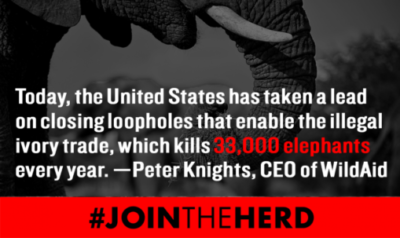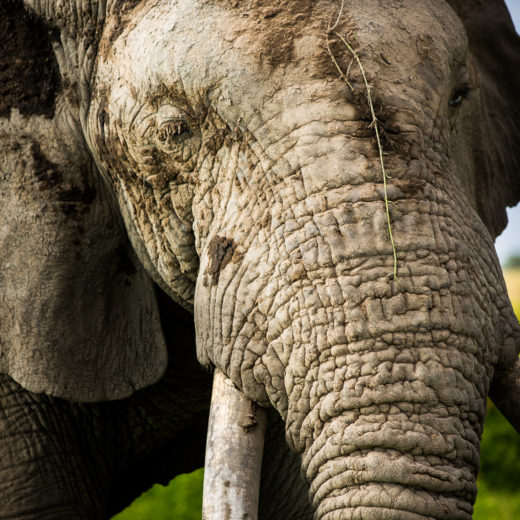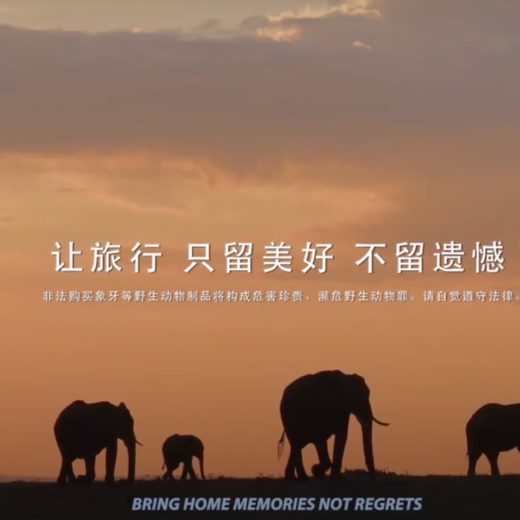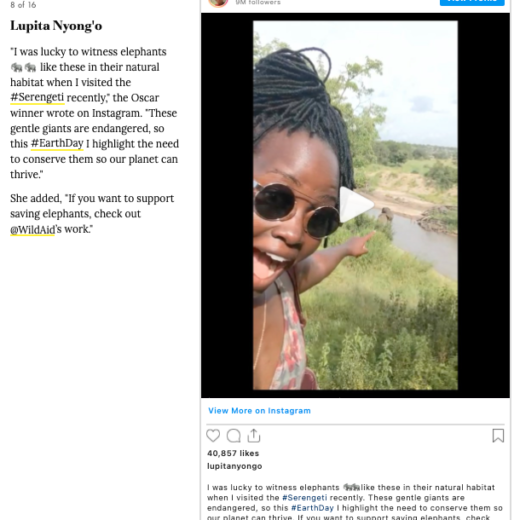
WASHINGTON (June 2, 2016) — In a bold effort to save Africa’s elephants, the Obama Administration has released strong, clear rules aimed at effectively shutting down the U.S. ivory market, one of the world’s largest.
Released Thursday, the final Endangered Species Act special rule for the African elephant substantially limits imports, exports and sales of African elephant ivory across state lines, while carving limited exceptions for certain pre-existing manufactured items, such as musical instruments, furniture pieces and firearms that contain less than 200 grams of ivory. The rule was finalized after a lengthy review period that drew 1.3 million public comments overwhelmingly in favor of protecting elephants.
The new rules issued Thursday by U.S. Fish and Wildlife Service follow landmark commitments made last fall by President Barack Obama and Chinese President Xi Jinping to abolish the domestic ivory markets in their respective nations. Hong Kong SAR officials announced in January their intentions to do the same, followed by France, which announced a ban on the ivory trade soon after the historic ivory burn ceremony in Kenya on April 30.
Peter Knights, CEO of WildAid, said of the new U.S. ivory restrictions:
“Illegal ivory markets drive the poaching of 33,000 elephants a year. Today, the US has taken a lead on closing loopholes that enable those markets. China, including Hong Kong SAR, have pledged to ban sales as well, and we hope that can happen quickly. Ivory prices in Asia are falling rapidly, and we would expect to see a reduction in poaching as a result. If Japan, the next largest market, can also act, we may be able to end this crisis for the elephants.”
The international commercial ivory trade was banned in 1989, following a decade of out-of-control poaching that decimated African elephant populations — from 1.3 million in 1979 to an estimated 609,000 by the late 1980s. As a result of the ban, poaching decreased significantly and ivory prices plummeted.
But “one-off” sales of ivory in the late 2000s, coupled with the ongoing legal domestic trade in places such as China (including Hong Kong SAR), Japan, Thailand, Vietnam and the US, have allowed for the laundering of illegal ivory shipments from recently poached elephants.
In September, member states of the U.N. Convention on International Trade in Endangered Species of Wild Fauna and Flora (CITES) will meet in Johannesburg, South Africa, where they will consider a proposal to strengthen the protection of African elephants in all range states.


Stay in touch and get the latest WildAid updates.
SIGN UPAbout WildAid
WildAid is a non-profit organization with a mission to protect wildlife from illegal trade and other imminent threats. While most wildlife conservation groups focus on protecting animals from poaching, WildAid primarily works to reduce global consumption of wildlife products such as elephant ivory, rhino horn and shark fin soup. With an unrivaled portfolio of celebrity ambassadors and a global network of media partners, WildAid leverages more than $308 million in annual pro-bono media support with a simple message: When the Buying Stops, the Killing Can Too.
Journalists on deadline may email communications@wildaid.org


